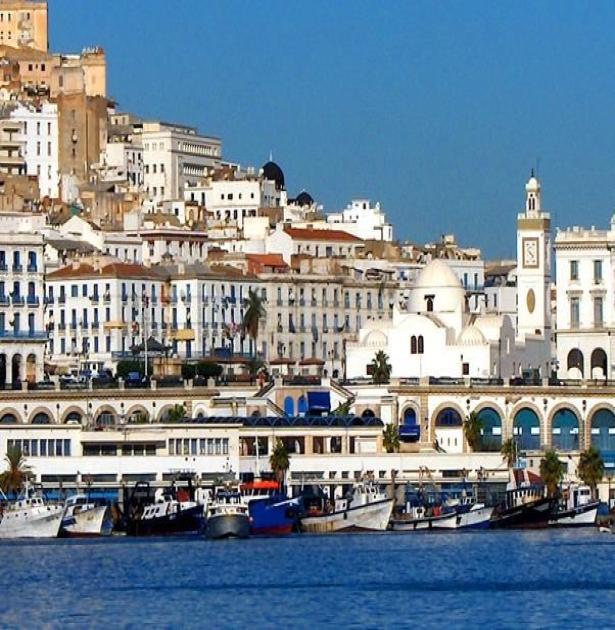Engagé pour votre Confort

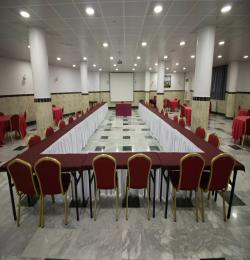
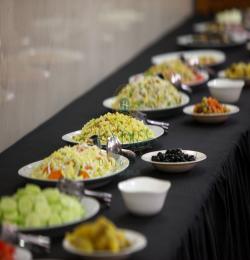

À propos de nous
Bienvenue à l'hôtel Hydra
Chambres en vedette
Chaque type de chambre a plusieurs chambres. Chacun peut envoyer une demande de réservation depuis ce site.
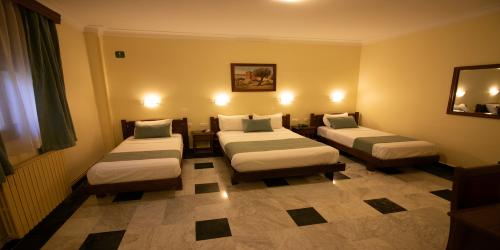
Chambre Triple
DA9,500.00 / Nuit

Suite
DA15,000.00 / Nuit

Chambre Double
DA8,500.00 / Nuit

Chambre twin
DA8,500.00 / Nuit

Chambre single
DA7,500.00 / Nuit
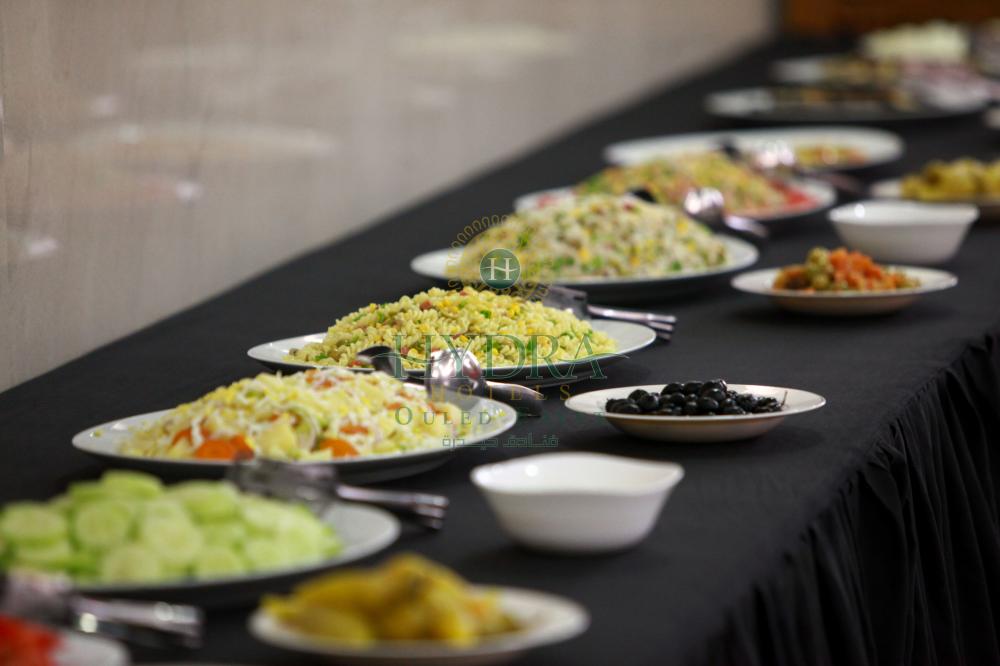
Notre restaurant
Salle de réunions
Pour vos réunions, colloques ou séminaires, l’Hôtel Hydra Ouled Fayet met à votre disposition 3 salles de conférence et 3 salles de réunion entièrement équipées. Ces espaces peuvent accueillir entre 30 et 150 personnes en configuration théâtre.
Confort et Équipements
Nos salles de conférence sont conçues pour répondre à tous vos besoins professionnels et incluent :
- Rétroprojecteurs et projecteurs de diapositives
- Équipement vidéo
- Écrans
- Planche
- Internet
- Services de pause-café ou thé
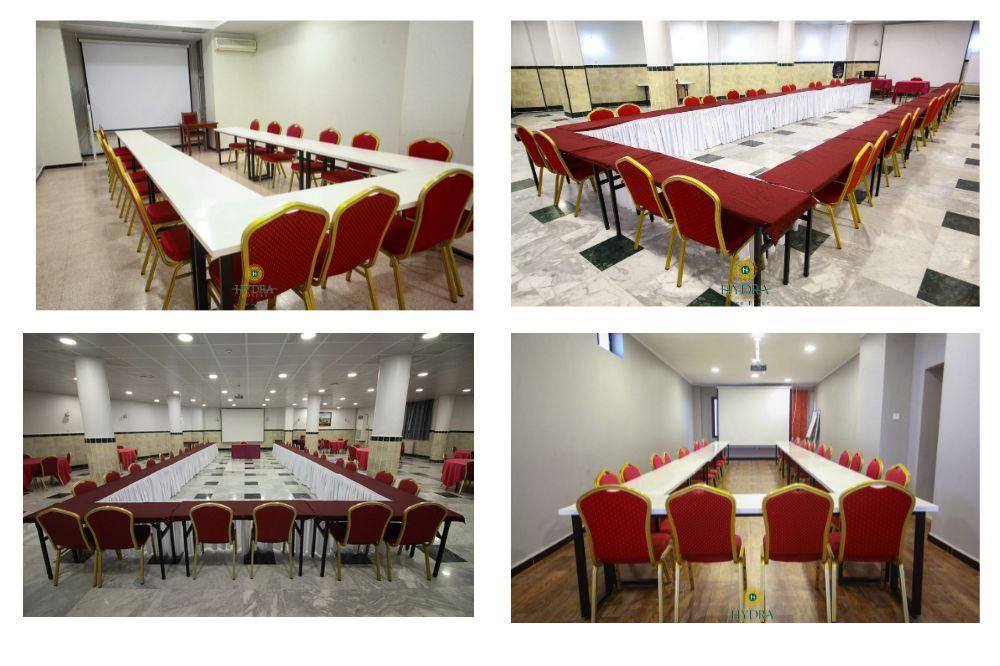
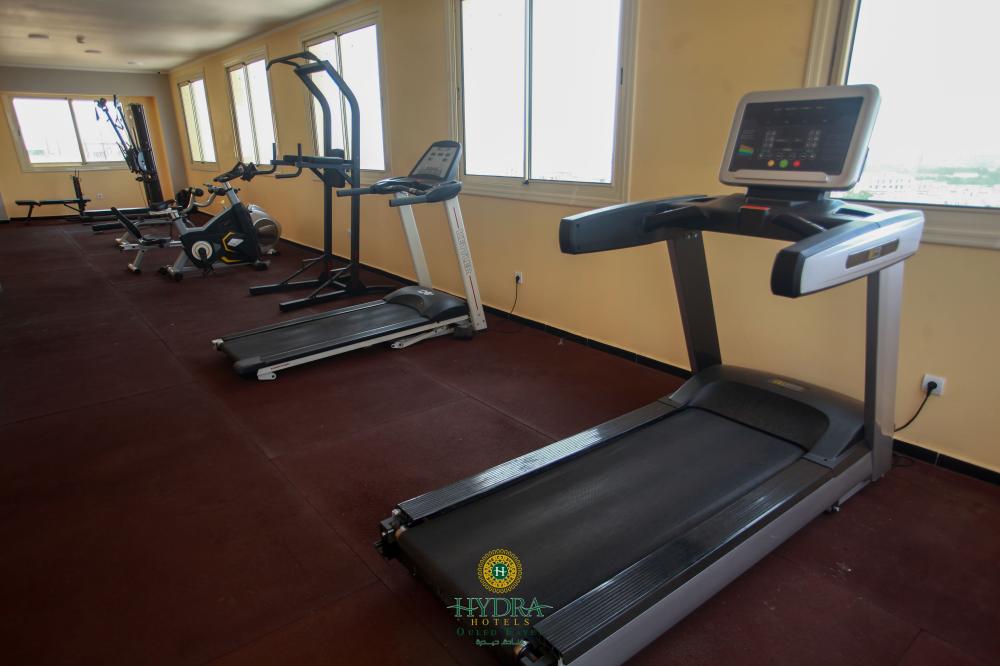
Salle de sport
Nos services hôteliers
At our hotel, we offer a range of services designed to enhance your stay. Enjoy a delightful dining experience at our on-site restaurant, where culinary excellence meets a welcoming atmosphere. For business needs, we provide six fully equipped meeting rooms, perfect for conferences, seminars, and private events. Stay active during your visit with access to our modern fitness center, featuring state-of-the-art equipment for all your workout needs.
Restaurant
Meeting Room
Parking
Breakfast Buffet
FAQ
Veuillez vérifier la question et la réponse. Si d'autres problèmes surviennent, veuillez nous contacter, nous résoudrons le problème dans les meilleurs délais.
Vous pouvez modifier ou annuler votre réservation directement via notre site web ou en nous contactant par téléphone ou email. Les conditions varient selon le tarif choisi.
L’arrivée se fait à partir de 12h et le départ avant 12h. Si vous avez besoin d’un horaire flexible, merci de nous contacter à l’avance.
Oui, un petit-déjeuner buffet est inclus dans la plupart de nos tarifs. Vous pouvez le savourer chaque matin de 6h à 11h dans notre restaurant.
Oui, nous avons un parking privé gratuit pour nos clients, sous réserve de disponibilité.
Oui, une connexion Wi-Fi gratuite est disponible dans toutes les chambres et les espaces communs de l’hôtel.
Oui, nous avons des salles de réunion équipées pour les séminaires et événements privés. Contactez-nous pour plus d'informations.
Vous pouvez modifier ou annuler votre réservation directement via notre site web ou en nous contactant par téléphone ou email. Les conditions varient selon le tarif choisi.
Dernier article de blog
Découvrir les derniers articles de blog
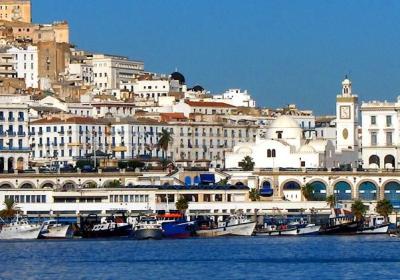
Top 10 des meilleurs endroits à visiter à Alger
Top 10 des Meilleurs Endroits à Visiter à AlgerAlger, surnommée la « Blanche », est une ville fascin...
Lire La Suite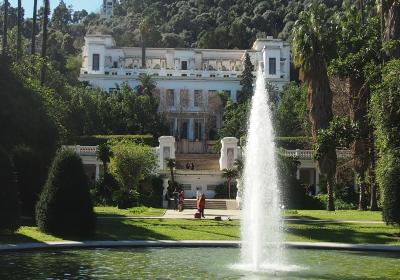
Découvrez les Musées d'Alger : Un Voyage à Travers l'Hist
Découvrez les Musées d'Alger : Un Voyage à Travers l'Histoire et la CultureAlger, la capitale de l'...
Lire La Suite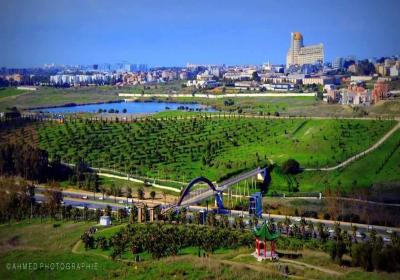
Les Attractions Touristiques Près de Ouled Fayet
Situé à quelques kilomètres du centre d'Alger, Ouled Fayet est un quartier en plein essor qui offre...
Lire La Suite

